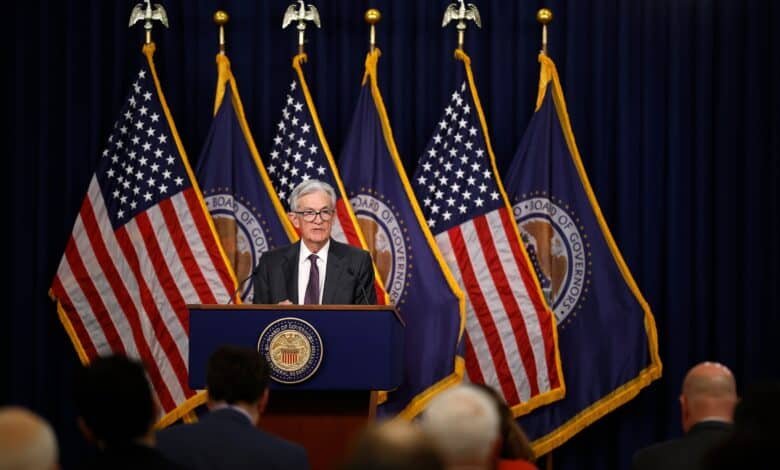Trump criticizes the Federal Reserve, requires lower interest rates

President Donald Trump criticized the Federal Reserve on Wednesday night, urging the Central Bank to reduce interest rates, hours after he chose to leave the indebtedness rates without changes.
The measure marked Trump’s last example that exerted pressure on the Federal Reserve, despite a long data of political independence in the Central Bank.
Trump said the lowest rates would better prepare the economy for tariffs that will intensify in the coming weeks.
“The Fed would be much better reduction rates as US tariffs begin to make the transition (relieves!) His way to the economy,” Trump said in a publication about Truth Social on Wednesday, and added “do the right thing.”
The president did not provide an additional explanation, but as recently as January, Trump advocated interest rate cuts in response to what he described as the lowest oil prices perspective.
Speaking in Washington, DC, on Wednesday afternoon, the president of the Fed, Jerome Powell, criticized Trump’s tariffs for a “good part” of recent inflation, advocating an approach to wait and see as the policy changes of the new administration are strengthened.
Even when the Fed left its main policy lever without changes, the Central Bank predicted a weaker economic growth at the end of the year and greater inflation than it had in a December forecast.
Uncertainty clouds the economic perspective, Powell said, pointing out the potentially “significant policy changes” of the Trump administration in areas such as trade, immigration and regulation.
“The uncertainty about changes and their effects on economic perspectives are high,” Powell said. “We are focused on analyzing the noise signal.”
If the Central Bank increases rates as a means to protect against fee -induced inflation, the Fed runs the risk of querying loans and slowing down the economy, experts told ABC News previously.
On the other hand, experts said if the Fed reduces rates to stimulate the economy against a potential slowdown, threatens to increase spending and increase inflation.

The president of the Federal Reserve, Jerome Powell, offers comments at a press conference after a meeting of the Federal Mercado Open Committee in the Federal Reserve, on March 19, 2025 in Washington.
Kevin Dietsch/Getty Images
The rare reprimand of the Trump Central Bank occurred weeks after its tariffs unearthed a world commercial war that sent shares of actions and caused concern about a possible recession.
According to some key measures, however, the economy remains solid. A recent job report showed a constant hiring last month and an historically low unemployment rate. Inflation is well below a peak reached in 2022, although price increases are recorded almost a percentage point higher than the 2%Fed objective.
In January, Trump also made a call for lower rates, days before the Fed chose to maintain stable interest rates.
Speaking at a press conference in Washington, DC, after that announcement of rates, Powell refused to comment on Trump’s call for lower interest rates, saying he would be “inappropriate” responding.
“The public must be sure that we will continue doing our job as we always have,” Powell said, adding that the Fed would continue to “use our tools to achieve our goals.”
After Wednesday’s rate, a journalist asked Powell again if Trump can interfere with Fed. In a brief answer, Powell said his previous comments.
“I think I answered that question in this room some time ago,” Powell said. “And I don’t feel like changing that answer, and I have nothing new for you today.”





